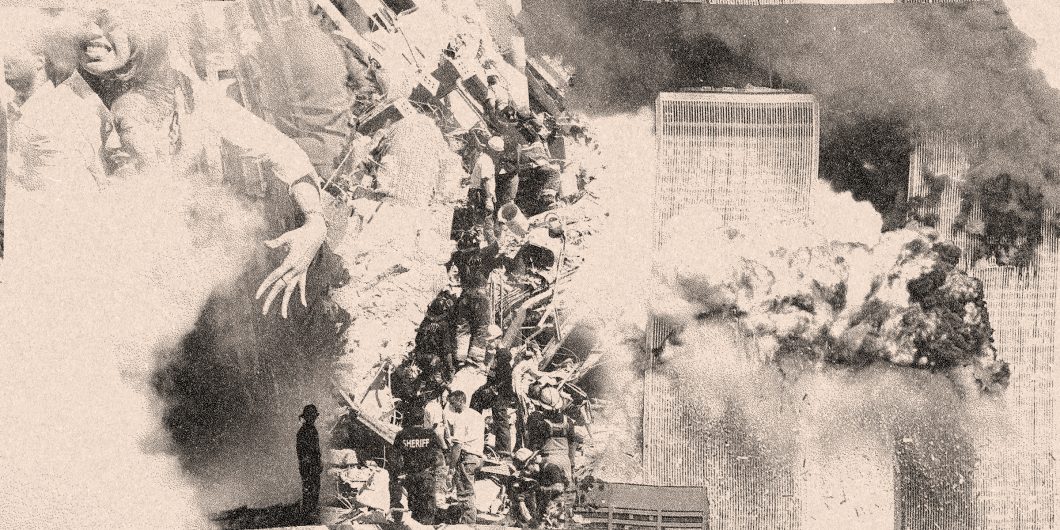I am pleased to share with you the top 5 Law & Liberty podcasts of 2020.
Learning From Our Long War Mistakes
William Anthony Hay’s reflections on the long shadow cast by the terrorist attack of September 11th seem to be grounded by a simple yet compelling thesis: the shock of this event, sustained for months by the horrifying images captured that day and broadcast endlessly in around-the-clock news coverage, the uncertainty over whether al Qaeda or other terrorist groups were plotting even more deadly attacks, and the “rightful outrage” it stoked, made it politically possible for American leaders to launch an audacious response. But sadly, as he rightly notes, the fear and anger that fueled American audacity “did more harm than the attacks themselves.”
The emotional response to September 11th at all levels of American society is certainly understandable. The very purpose of “terrorism,” after all, is to pursue political goals by triggering terror as an emotional response in the target audience. On this point, Osama bin Laden achieved his immediate goal. How we respond to our fears, however, remains an open question. Fear is a fascinating phenomenon that drives so much of human behavior in complex and contradictory ways. On one level, it is an essential survival mechanism that keeps us attuned to potential threats in our environment, and reasonable fears should spur the kinds of actions that will make us safer. But it’s also clear that there is a dark side to fear that just as easily might generate exaggerated perceptions of threat, impulsive behavior, and irrational or sloppy decision-making, sometimes with devastating and regrettable consequences.
For Hay, this is one of the troubling legacies of the emotional response to September 11th. It produced, he says, quoting John Mueller, a “false sense of insecurity.” Not only did this feed the Bush administration’s impulse to go big in response to the attack, fear also fed a national-level group think that stifled honest assessment of the dangers we faced. It stifled debate over the policy options available, the wisdom of launching preventive wars and overthrowing regimes, and the feasibility of then transforming these alien societies along western lines. As Hay notes correctly, “calculating risk differently against the prevailing expert consensus helped neither careers nor reputations.” This is a point that must be taken seriously.
When we talk of legacies and the shadows cast by dramatic events, we often look for actual changes—political, social, legal, or strategic changes—that these dramatic events leave behind. One potential legacy of September 11th, and the American experience in Afghanistan and Iraq that followed, is a change in how Americans think about the efficacy of military power. For the past several decades, the American military has unquestionably fielded the most professional and lethal fighting force in the world. When it comes to the disciplined application of firepower on a near global basis, America has no rivals. The Gulf War against Iraq in 1991 seemed to prove that fact beyond doubt, and in turn, that dramatic event left its own legacy in the minds of most Americans: a confident belief that war is low cost, it is quick, and it works. But Hay is spot on in his assessment that the wars the United States took on a decade after the Gulf War, in Afghanistan and in Iraq once again, are terrible reminders of the limits of American power, particularly military power.
Overthrowing the Taliban and Saddam was easy. Firepower, as one strategic tool we can draw upon, was suitable for this specific strategic objective. But American leaders wanted much bigger political objectives from these military operations. They wanted to fundamentally transform the social, political, and economic orders in each of these states to turn them into something like open, democratic, tolerant, competent, western-oriented, responsible members of the international community. These are strategic goals that grossly exceed the professional core competencies of the American military, the institution given virtually all strategic responsibility in each case. And more importantly, these are political objectives that arguably no outside power can produce in complex societies, no matter what strategic resources they deploy or strategic logic they pursue. But this is what political leadership demanded, so this is what military leaders tried to deliver. To take issue with Hay just a bit, it is not that the United States and its partners suffered from a “lack of effective strategy” in Afghanistan. They suffered from a strategy that aimed at completely unrealistic political objectives.
Much of the enduring debate over American policy will descend, unfortunately, into politically charged recriminations over who “lost” Afghanistan and Iraq. A jarring dose of recriminations is inevitable. But perhaps the frustrations of the past twenty years will also open safe political and intellectual space for patriotic dissent that won’t ruin reputations or careers.
Carl von Clausewitz noted two centuries ago that political leadership must depend on the expertise of military professionals in the process of developing and executing strategy when it draws on the military instrument. But this does not relieve political leaders from their obligation to understand enough about military power to appreciate what political goals it can and cannot accomplish. Clausewitz’s admonition to “policy”: know your instrument. In recent years, scholars have called this the “power conversion problem.” Power cannot be measured by the size of your economy, the number of soldiers under arms, the size of your fleet, your nuclear arsenal, your intelligence network, or any of the other material resources available to throw at a problem. “Power” is the ability to achieve your goals. While each of these resources may serve as valuable tools for specific political aims, there are clear limits to what these tools can produce. President Lyndon Johnson was famously befuddled by the fact that the United States of America, the most powerful nation in the world, could not beat the Viet Cong, a bunch of “night riders in black pajamas.” What counts as a power resource depends on the social context of what you’re doing: who are you trying to get to do what? Military power is a blunt instrument, and as your policy goals become more complex, particularly when they involve fundamental political and social change in other parts of the world, the utility of violence, or the threat of violence, erodes quickly as the means to influence others in transformational ways. Which brings us back to the legacy of September 11th: will American leaders, the national security community, pundits, and the public think more critically about the limits of what military power can accomplish? This is one potentially positive outcome of these otherwise painful experiences, but the jury is still out.
There is another potential, and directly related, positive change that could emerge in the shadow of September 11th. Perhaps as a backlash to the enthusiasm and self-confidence that helped propel the outsized ambitions of these American military interventions, we might witness a greater willingness to challenge the kind of group think that infected so much of the public discussion of American policy in the years immediately after September 11th. The question is, will this reminder of the limits of military power, as Hay puts it, help restore critical assessment and open debate when proposals for military options are on the table? I quoted Clausewitz in the previous section, so I might as well quote Thucydides in this one. In Thucydides’ classic account of the Peloponnesian War among the ancient Greeks, he tells the story of the fateful vote in the Athenian Assembly that approved the Athenians’ ultimately disastrous expedition to Sicily in 415 B.C. It is one of the most audacious foreign policy moves you can find in recorded history, and as Thucydides says, “everyone fell in love with the enterprise.” Unfortunately for the Athenians, “with this enthusiasm of the majority, the few that did not like it feared to appear unpatriotic by holding up their hands against is, so kept quiet.” And in the end, the expedition suffered “utter destruction.”
The United States has not suffered anything nearly so catastrophic. But perhaps these post-September 11th operations will fortify or embolden those who, unlike the timid skeptics in Athens, and the skeptics in the United States 2,500 years later that didn’t press their skepticism boldly enough, might be more vigorous in the exercise of patriotic dissent. It’s patriotic to ask hard questions, to challenge the assumptions, to probe the intelligence estimates, to reveal flawed strategic logic and unrealistic cost estimates. Much of the enduring debate over American policy will descend, unfortunately, into politically charged recriminations over who “lost” Afghanistan and Iraq. A jarring dose of recriminations is inevitable. But perhaps the frustrations of the past twenty years will also open safe political and intellectual space for patriotic dissent that won’t ruin reputations or careers. Sometimes, learning from our mistakes is the best way to salvage some value out of the choices that can’t be turned back.



